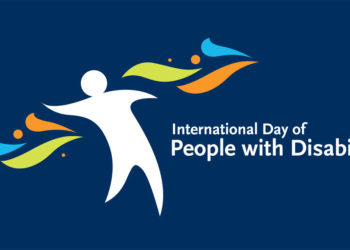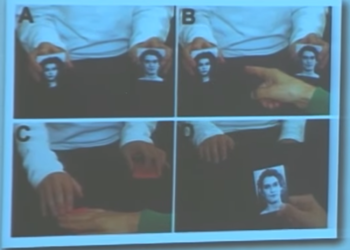This year’s Association of University Presses’ annual conference included a Collaboration Lab on Early Career Pay Equity and Inclusivity. Facilitators Rebecca (Becca) Bostock, Associate Editor and Subventions Coordinator at Ohio State University Press, and Dominique (Dom) J. Moore, Acquisitions Editor, at the University of Illinois Press presented the results of a survey on the topic that they carried out earlier this year. Their goal was “to start a conversation around early-career pay equity to expand current conversations around diversity and inclusivity in the AUPresses community.” In this interview, they share why they chose to focus on this issue, what they learned from the survey, and how they hope to continue the dialogue—and help effect real change.

Please introduce yourselves — what is your role and organization, and how did you get into scholarly publishing?
Becca Bostock (BB): I’m an associate editor and subventions coordinator at the Ohio State University Press (OSUP). I’ve been at OSUP for about five years, and I initially started as a part-time editorial assistant in acquisitions after finishing my master’s at Ohio State. I knew I wanted to transition out of academia and into academic publishing, but I didn’t really know what that “meant” before coming to the press. It was spectacular timing that they happened to have an opening right as I started looking.
Dominique J. Moore (DJM): I started as an acquisitions editor at the University of Illinois Press in February of this year. Before that I was an assistant editor at the University of North Carolina Press for a year. However, I’ve been in publishing since 2016. In a desire to move out of editorial and into acquisitions, in addition to wanting to move into scholarly book publishing, I applied for and received the 2019 Mellon University Press Diversity Fellowship at OSUP. That’s where I met Becca.
What prompted you to work together on early career pay equity and inclusion?
DJM: This work started organically. We got to know each other fairly well during our overlap at OSUP. In forging that relationship, we bonded over how similar some of our experiences were of working in the industry. Particularly, we found it funny (at first) that we both needed another source of income in our assistant roles. Those conversations became the impetus for putting together a proposal for an AUPresses Collaboration Lab. It wasn’t until we put out our survey that we discovered we had hit a nerve.
BB: In some ways this was always a conversation that we had been having together over the course of a couple of years, and that we just wanted to have in front of a larger audience. It wasn’t so much about coming together to work on a specific topic, it was that this topic was — and is — affecting our work lives on a daily basis. It’s not something that we see as a one-time conference presentation to say good job, we talked about it. This is an ongoing discussion that we genuinely want to impact change.
Can you tell us more about the survey you carried out for your session at the 2021 AUPresses conference — who did you hear from and what did they tell you?
BB: We wanted to do a survey that asked some basic, but somewhat taboo, questions, as well as some more open-ended questions about pay equity and inclusivity that people don’t necessarily openly talk about. That ended up ranging from questions like how much do you make, did you negotiate your starting salary, have you ever been turned down for a raise, to asking whether respondents had a clear understanding of what they needed to do to get promoted and what types of benefits their presses could potentially offer them in lieu of additional pay. We weren’t sure what kind of response we’d get and who would bite, but we were thrilled to get nearly 200 responses from people at all different levels of seniority, from editorial assistants to directors, and across all different departments.
What we found was that people feel incredibly isolated around these issues, but that their struggles and frustrations are similar across the board. We had a hunch, for example, that many people in the industry have or have had outside sources of income to supplement their salaries from their presses, since this was the case for both of us. What we found was that more than one third of the respondents who work full time currently have outside sources of income, and, of those who don’t, 40% did at one point have another source of income. For those who didn’t have another source of income, the reasons why were mainly due to not having enough time or not being in a two-income home.
DJM: It was also eye-opening to see how many people felt as if they did not have the knowledge or the resources they needed to advance in their careers. This ranged from having opportunities for networking and professional development, to having an understanding of the core competencies needed to move up and be promoted. Additionally, employees feared retaliation for something as simple as telling their superiors that they were being unreasonably undercompensated for doing the work of two — and sometimes three — workers. Some of this fear was due to seeing retaliation against others in similar positions at their press.
What do you think are the main barriers to improving early career pay equity and inclusion in scholarly publishing?
DJM: Labor costs are the largest expenses any company will incur. For most presses in this space, margins are extremely thin. This makes underpaying early career professionals a seemingly inevitable choice to make the numbers work. This doesn’t even account for the norm that many of us work a lot of hours that we are not monetarily compensated for, making the discrepancy between what one should and what one does earn even greater. Plus, it goes without saying that publishing is a popular career choice. With job markets in adjacent fields such as academia on the decline, there is an overabundance of (over)qualified applicants, which serves to keep wages stagnant.
But, even if this wasn’t part of the case, we think scholarly publishing suffers from the same issues that many industries do. The unspoken rule is that if you work really hard, insert yourself (or be invited) into the right networks, and pay your dues, then you will be rewarded with a high-paying salary down the road. On top of that, in the non-profit space and with intellectual pursuits, it is presumed (and for quite a few of us it is the case) that we all love what we do — with the implication that salary should not be anyone’s main concern.
And then there is Ol’ Faithful: “this is just the way we’ve always done it.”
All of this makes the barrier to entry so much higher for anyone who is not white, an American citizen, college-educated, middle class, straight, cisgender, male, neurotypical, and able-bodied. We must also think through what this means for those who serve as primary and sometimes sole caretakers.
BB: The pandemic has only exacerbated these barriers to entry, as well. Many universities put a freeze on raises and promotions last year, and it doesn’t seem to be the case that people are getting two years worth of merit raises or even cost of living raises to adjust for that lost income. So if you started two years ago, you might as well have lost a year’s worth of experience, for all of the good it’s doing you salary-wise.
What are the benefits for scholarly publishers if those barriers can be overcome?
BB: We work in a field where people tend to hop around a lot to different presses to make upward or even lateral career moves. Dom has been at three different presses since 2019, for example. So to name one, employee retention — keeping the talent in-house. We, as presses, are investing resources into people who often end up leaving the field in the first five years, because the wage stagnation and lack of advancement opportunity isn’t sustainable for middle-class white people, let alone for people of color, people with disabilities, working mothers, solo parents, etc.
DJM: But we’d be remiss if we didn’t say we also need to challenge the idea that paying people a thriving wage and retaining a diverse workspace needs to have a tangible “benefit” to the employer to justify doing it. Doing what’s right — and what’s equitable — must be seen as beneficial in and of itself.
Have you taken any steps to improving your own pay and benefits? What did you learn from the experience?
BB: We’ve both been fortunate to have made upward career moves since we started talking about collaborating on this project about a year ago. I recently received a 28% raise, though before that I was making — after more than four years — the minimum wage in my city. I’ve been fortunate to have superiors who have been willing to advocate for me and have conversations about salary with me. Oftentimes, a large barrier for people working in university presses is the institutional bureaucracy. It means that any conversations about pay or promotion need to be had at multiple levels, and it’s not a one-off conversation. You have to continually advocate for yourself, and it takes time.
DJM: As Becca mentioned, I’ve done quite a bit of jumping around in the last two years. This is the standard way of improving one’s pay in this industry. I wouldn’t have chosen to move around so much in such a short amount of time, but the ideal positions for me opened up, and I was both lucky and privileged enough to move into them. However, in moving around at such a rapid speed, you quickly start divorcing your identity and sense of self from where you work and what you do.
With this last move into a full acquisitions editor role, I now have the financial stability to stop quite a bit of the additional freelancing work I was doing before. I discovered just how much I was working a year ago — and how untenable it was.
What one thing could any scholarly publishing organization do now that would immediately improve early career pay equity and inclusion?
DJM: We are aware that increasing pay requires buy-in from a host of stakeholders, not just at the press-level but (for our organizations) at the university-level as well. In the meantime, one of the alternatives we advocate for is the four-day work week. Many presses are already implementing summer half-day Fridays at a minimum, so we know it works. Additionally, we need to do everything we can to maintain flexible work hours and remote work options, as well as providing resources to support them. It all boils down to trusting that, as adults, we can manage our own time and get our tasks done in a timely fashion. We must also stand in support of our peers in the industry who have called for unionization at their presses.
BB: The bottom line is that there is no substitute for equitable pay and thriving wages, but there are any number of things that can make workplaces more hospitable, reduce employee burnout, and cater to the needs of the workers who make the least money. We need to have less of a top-down mindset when it comes to benefits trickling down. A four-day work week is a great start. One of the things that the pandemic has really done for us is to expose how capable people are of managing their own schedules and figuring out their best modes of productivity. Work hours should not be punitive. A 9-5 schedule simply does not work well within the scope of many people’s lives, but that doesn’t mean that they’re not capable of handling — and excelling at — their jobs.
What about in the longer term — what bigger step(s) do scholarly publishers need to take in this area?
DJM: It goes back to buy-in among the stakeholders. We need to transparently identify who they are and what they need at our respective institutions. From there we must establish clear and measurable benchmarks to which we hold ourselves accountable. Those of us who are committed to pay equity have to remember that these bigger steps are just that — steps. The probability that pay will drastically change for us is marginal, at best. We do this for those coming after us and, if we remember that during our tenure, we can create durable, long-term models for change.
BB: It’s easy to talk about sweeping changes in a theoretical sense, but harder to implement them in practice, we all know that. The pandemic forced us all to make radical changes to our work structures, and some of them have been an improvement over our old models. So the first step, today in 2021, is to assess what really worked about our pandemic work models and not dismiss those practices in favor of a return to business as usual. Business as usual didn’t work for a lot of people.
Last but not least, what’s next for you? How do you plan to continue advocating for early career pay equity and inclusion? Is there anything Scholarly Kitchen readers can do to help?
BB: We feel that peer-to-peer connection is essential to keeping these conversations surrounding early career pay equity going and making meaningful change happen industry-wide. It’s a little bit different than mentorship, since we’ve both found that having someone at a similar stage in their career as a friend and sounding board has been hugely beneficial to our own career progress in the past couple of years. We’re currently in the process of creating an early (and mid!) career buddy system that will hopefully allow people to connect across the industry and have open conversations around money, benefits, work-life balance, and the like.
DJM: We also believe that change is the byproduct of sustained communities. Facilitating a peer network is our contribution to that endeavor. In doing this, we hope to establish a platform to ask those taboo questions, build more intimate relationships, and teach one another how to advocate for ourselves and for each other. As we move into mid-career roles, we also advocate at our respective presses by mentoring the new and early career professionals coming through the ranks there. I’m also excited to announce that I will be joining the Equity, Justice, and Inclusion Committee at AUPresses. It’s a three-year appointment, and I look forward to maintaining pressure on these issues within formal and informal networks at multiple levels within the industry.
To the readers, there’s so much work to be done. We know it can be overwhelming at times and burnout is real. None of us alone can take on every structure and institution, so find the smallest hole you can, the one you care about, and try to fill it.
Thank you both—for this interview and for your efforts to improve pay equity and inclusion in our industry!
Discussion
7 Thoughts on "Why We Should All Care about Early Career Pay Equity and Inclusion: An Interview with Becca Bostock and Dominique J. Moore"
Very pertinent this article. In Colombia, something similar happens. The salaries offered by university presses do not equal the functions of the job. They are far below! Even for senior positions!! And burnout is normalized!
Completely agree Amalia. Plus there are so many qualified applicants for any given position that, I believe, there is little incentive to change pay structures. While we started out wanting to get data for early career professionals, the data started to show a trend of underpayment at all levels.
Thanks for your research, Dominique.
Very well-spoken interviewees! It would be great to see the research’s scope extended to non-university presses. From personal experience, I’m sure you would find some surprising/frightening results.
Agreed Joe – and it would also be helpful to see if there are regional differences, per your comment Amalia. Maybe something for C4DISC to consider working on?
It would be very relevant. Tks for your comment!
Agree with DOMINIQUE J. MOORE. A timely good article. Peer salary data platform with necessary privacy protection, work-life balance, work union, basic income mechanism or statutory social insurances and other benefits will do.



